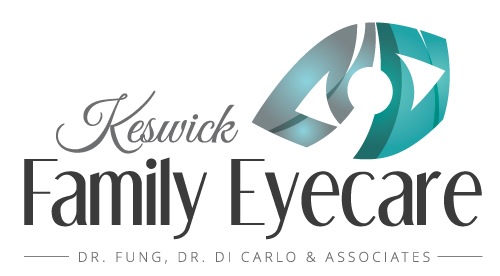Vision therapy is like physiotherapy for your visual system; the idea is to train the eyes and brain to work together as effectively as possible to give your child optimal vision.
There’s evidence to suggest that children suffering from learning difficulties often have vision issues, which further interfere with their ability to learn. One study found that kids with Individualized Learning Programs (which are designed to accommodate unique educational needs like ADHD, Dyslexia, and others) had significantly more vision issues than kids with more average educational needs.

Many optometrists even suggest having a child’s vision assessed before seeking a diagnosis from a psychologist or psychiatrist because their learning problems might be entirely vision-related. But learning disabilities often come with behavioural problems like angry outbursts, tantrums, non-compliance, and more.
Is it possible that undiagnosed vision problems could trigger behavioural issues as well? And is it possible that vision therapy could help address these types of problems? Some optometrists (myself included) think they can.
The Important Difference Between Vision & Eyesight
By this point, some parents are already dismissing the idea. “My child has a vision screening every year, and they have 20/20 vision.” The problem here is that eyesight and vision are not the same things.
Eyesight refers to how your eyes gather information and the quality of that information. Vision is more complicated. Vision refers to how that information travels to your brain, how your brain receives the information, and finally, how your brain processes and interprets the information.
Your child could have an eye exam every year and still have undiagnosed vision issues. It’s important that your kids receive comprehensive eye exams that evaluate their sight and their vision by testing eye tracking, eye teaming, and other elements.
How Do Vision Issues Become Behavioural Issues
Low Self-Esteem
80% of learning is visual. In order to keep up with their peers, children need to be able to read well and take in visual information. Kids with undiagnosed vision problems often notice that other kids seem to understand things quickly and easily while they struggle to grasp basic concepts.
This can make kids feel stupid and inadequate, especially when no one understands why or how they don’t just “get” it.
This feeling of inadequacy can sometimes leave children vulnerable to bullying, which of course, compounds the problem.
Academically, kids who struggle to retain information may “give up” on learning in an attempt to preserve their self-worth. By taking on the identity of a “slacker,” children can tell themselves that low grades and poor performance are due to their decision not to try rather than their struggle to understand underlying concepts.
Poor Concentration
Imagine a computer or robot from an old science fiction movie. When posed an impossible question, automaton’s processor starts to sizzle, the machine utters a desperate “does not compute,” and sparks fly before the machine finally shuts down.
This is sort of what happens to a person with vision problems. Concentration requires a lot of energy for anyone. But when a child with undiagnosed vision issues has to spend a lot of time reading, their brain starts working overtime, trying to make sense of all the messages it receives.
Eventually, the brain starts to shut down the child’s ability to concentrate to prevent it from slowing down other necessary abilities, like processing the other 4 senses.
Lack of Social Awareness
Social interaction is a crucial part of growing up and developing an understanding of how to connect and interact. Kids with undiagnosed vision problems sometimes draw away from social interaction, because their lack of coordination or depth perception makes it difficult to participate in things other kids enjoy, like sports or 3D movies.
Without a social element in their lives, kids fall behind in their understanding and recognition of social norms and cues, which can further add to their isolation as they grow older.

Symptoms Of Vision-Related Learning Problems
- Poor handwriting
- Writing letters backwards
- Confusing left and right
- Under-developed coordination & depth perception
- Frequently losing place while reading
- Hating or avoiding reading (particularly reading out loud)
- Hating or avoiding math
What Is Vision Therapy?
Vision therapy is a series of exercises and treatments which train the eyes and the brain to work together as a cohesive system. While it may not necessarily cure every vision problem, it can help improve your child’s vision by making sure their eyes transmit information that their brain recognizes and knows how to process.
Vision therapy requires a customized treatment plan and is totally unique for each patient. Your optometrist may suggest treatment over the course of a few months, or you may need to continue therapy for a full year for optimal results. Only an optometrist specializing in vision therapy can really determine how long treatment will take.
Some Final Thoughts

There’s no real objective evidence to suggest that vision therapy will directly deal with behavioural issues. However, by strengthening your child’s vision and giving them better opportunities to learn, low self-esteem, inattentiveness, and social ineptitude will likely improve self-esteem, attentiveness, social aptitude and prompt a positive change in behaviour.
More often than not, behavioural problems are part of a cocktail of internal and external influences. While I definitely recommend a comprehensive eye exam and vision screening for your kids every year, it’s also a good idea to speak with your pediatrician and a pediatric psychologist or psychiatrist about learning and behavioural difficulties.


